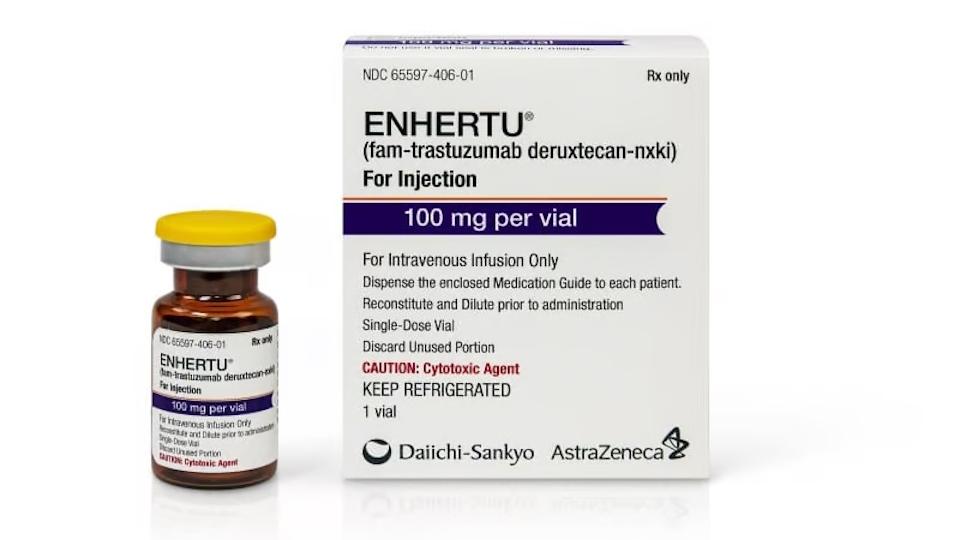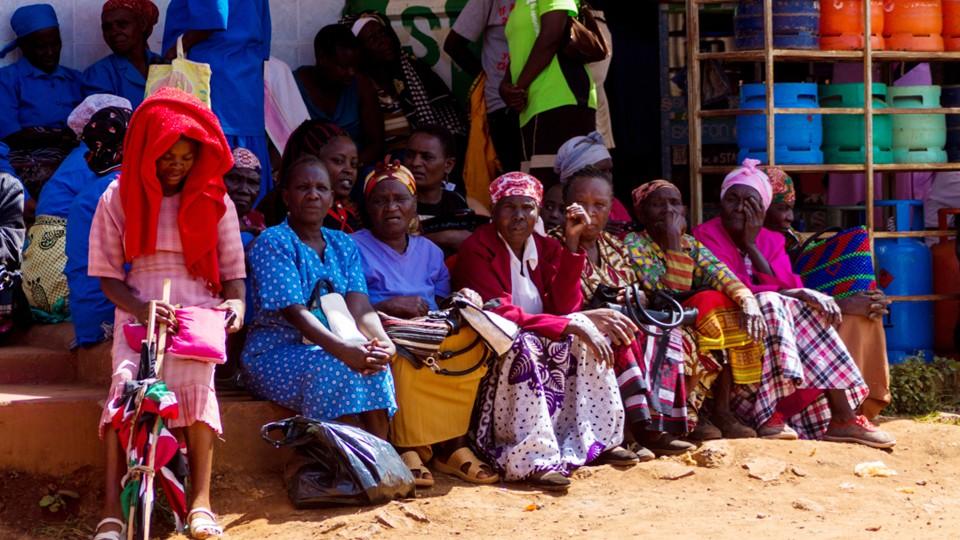EU starts review of Enhertu in HER2-ultra-low breast cancer

The EMA has started a review of AstraZeneca and Daiichi Sankyo's antibody-drug conjugate (ADC) that could see the drug being used in advanced breast cancer with even lower levels of the HER2 biomarker.
The marketing application for Enhertu (trastuzumab deruxtecan) is based on the results of the DESTINY-Breast06 trial, one of the highlights of this year's ASCO congress, which enrolled patients with tumours that were hormone receptor-positive and either HER2-low or HER2-ultra-low, who had previously been treated with one or more lines of endocrine therapy.
Daiichi and AZ have estimated that approximately 60% to 65% of HR-positive, HER2-negative breast cancers are HER2-low and potentially an additional 25% may be HER2-ultra-low.
There are no targeted therapies specifically approved for patients with HER2-ultra-low expression, and approval would move Enhertu up the treatment pathway ahead of chemo.
The results reported at ASCO showed a significant 38% improvement in progression-free survival (PFS) with Enhertu compared to chemotherapy, a standard approach to treating patients in this category. Patients took about five months longer to see disease progression.
The benefit was seen in both HER2-low and HER2-ultra-low patients, prompting investigators to suggest that Enhertu could become a new standard of care for patients with HER2-low- and HER2-ultra-low-expressing tumours following endocrine therapy in the metastatic setting.
Enhertu is already approved for patients with HR+, HER2-low breast cancer after endocrine therapy based on the DESTINY-Breast04 trial data, but adding the DESTINY-Breast06 data to the label – and including the ultra-low group – could make the ADC an option for 90% or more of patients.
At ASCO, commentators said the efficacy of the ADC would need to be balanced with its potential to cause side effects, as Enhertu can lead to more serious toxicities – such as interstitial lung disease (ILD) – compared to traditional chemo. That has raised questions about AZ and Daiichi Sankyo's ability to push Enhertu into earlier settings.
The EU is the first regulator to kick off a review of the new data, but Daiichi Sankyo said additional filings are being made around the world.
Enhertu is already a blockbuster, with sales doubling to around $2.5 billion last year, and could see its momentum gather even further after being approved by the FDA earlier this year for all HER2-positive solid tumours, regardless of their location in the body.
"This submission builds on our existing indication for Enhertu in patients with HER2 low metastatic breast cancer and an expanded approval would enable the potential for use in an earlier disease setting, as well as in a broader patient population that now includes HER2 ultra-low," said Ken Takeshita, Daiichi's head of R&D.












